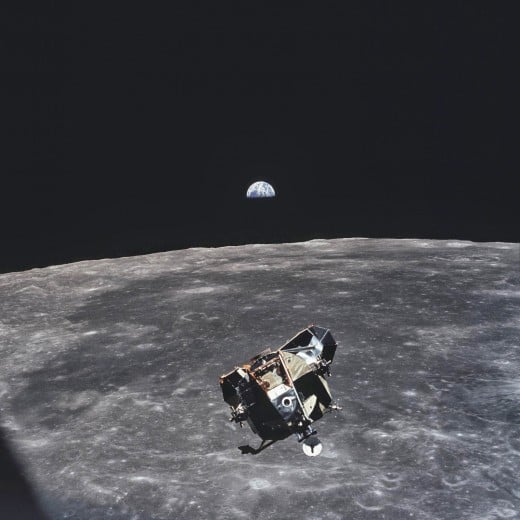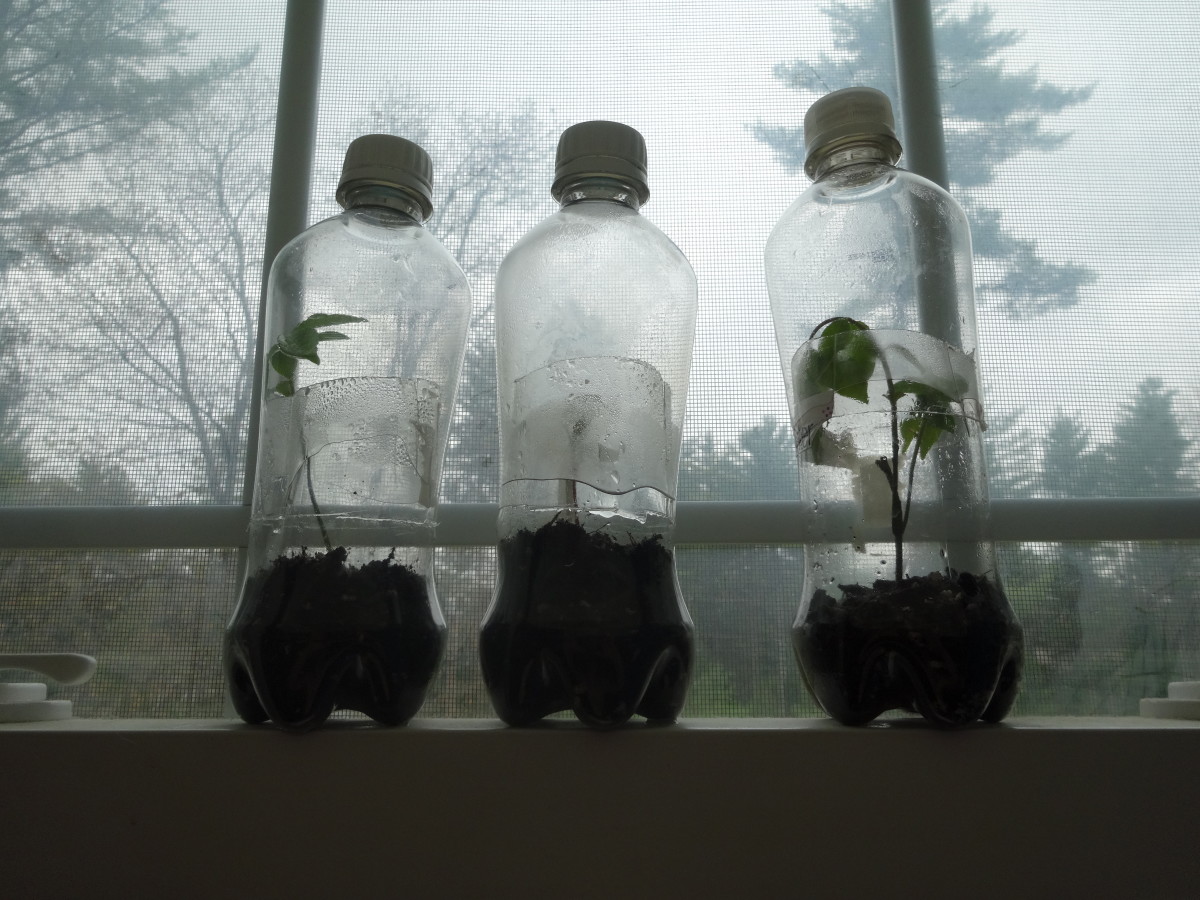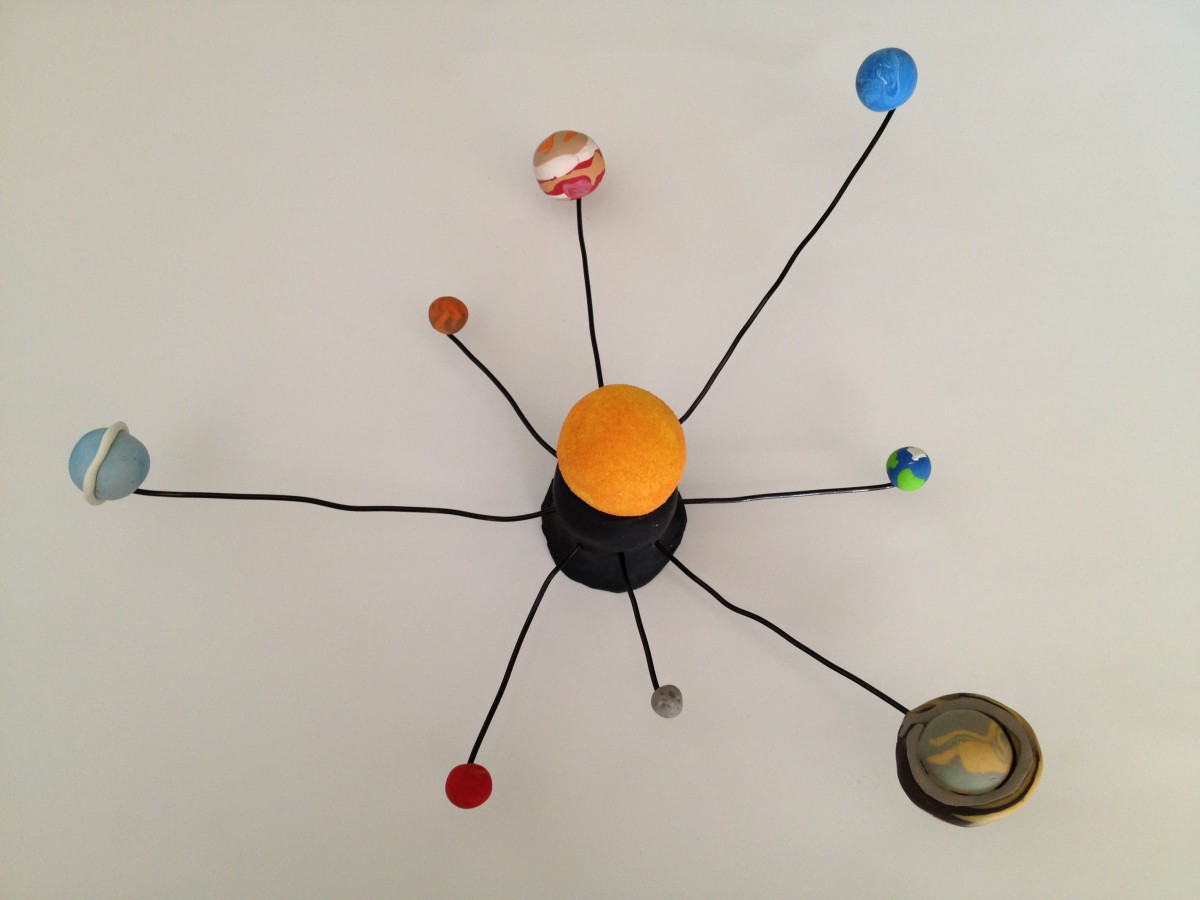Spaceship Earth "Fifty Years On"
Fifty years ago!

A huge milestone.
This week we celebrate one of the greatest achievements that mankind has ever done. The day a man walked on the surface of another heavenly body, our Moon!
Even today the fact that mankind even went there is still controversial, and a pretty large minority still think the whole thing might have been faked, I'm not one of them, and I guess that most of the people reading this aren't either, but a lot of people are still upset that so much money was spent on sending a dozen or so men to the moon when there was so much that the money could have been spent on here on Earth, but guess what, We're living in a time where what they did will become vital, not just for the political kudos it gave the administration of the USA at the time, but will become vital for the survival of the human race!
That's a big claim, and will probably upset a few reading this hub, but I really believe it, not only that but so do many of today's scientists, and some are doing something about it, but more of that later.
Like any 'spaceship'
Crew?
Yes, just like any 'spaceship' the Spaceship Earth has a crew. The difference is that Earth's 'crew' at the moment is comprised of a 'compliment' of eight billion people, not to mention unknown amounts of species of various animals, fish, birds, reptiles, insects, vegetation and every other living creature, all of which are vital for the survival of all the others.
Last episode we saw that the very Oxygen we breathe is produced by tiny plankton often living in a symbiotic relationship with other life forms such as trees and seaweed, remove that plankton and within a very short space of time all life will cease.
Bees are another vital part of the chain, the little creatures that fly around, landing on plants and taking the nectar, they move around and help those plants to reproduce, take the Bees away and within a couple of years, all food on the planet will cease to grow!
Everything is finely balanced, but slowly reaching a critical point, and a point where we will have some hard decisions to make.
Man
First of all, let us say from the start, Mankind isn't the problem, he isn't even the one who creates the problem, but he is the only species that can do anything about the problem.
Mankind has reached the point where there are seven-point seven billion people alive on Earth right now, and that number is expected to hit around ten billion by the year 2040.
The issue is that many believe that the Earth can't sustain that many in the long term, they estimate that by the year 2100 the Earth will reach an unsustainable level of population (around fifteen billion) and things will only get worse from there onwards.
What a few have said about this.
- Overpopulation 'is main threat to planet' | The Independent
Climate change and global pollution cannot be adequately tackled without addressing the neglected issue of the world's booming population, according to two leading scientists. - The end of the world is NEAR, and Stephen Hawking has predicted how it will be destroyed | Science |
THE end of the world will come within 600 years as overpopulation will cause Earth to become a blazing ball of fire, according to Stephen Hawking.
Enough!
Okay, enough of the 'doom and gloom' that's not what this article is about! It's more about looking at the precious place we've been given and looking to see if we can continue to live here while growing as a population and enjoying what the Good Lord has given us.
I believe we can, but like a crew having to work together, it's going to take us working together, each one doing their part, and encouraging others to take part in this great endeavour.
Recycling
I have to admit, this is something that really frustrates me, see here we have recycling, but not every type of plastic can be recycled by our council. Personally, I think they're just lazy and don't want the hassle of sorting stuff, but I have to 'go with what they say' as every time we put Yoghurt cartons into the recycling they take them out!
Recycling will go a long way to helping us, but it's not the total answer, or as Stephen Hawking said, "It'll buy us time"
Greenhouse gasses
This one is a tricky one here in NZ, see at the moment we have a Labour government (read left-wing, but not as far as some think) at the moment, and the last time we had a Labour government they tried to introduce a 'flatulence tax' on Cows farting!
That is totally true! The reason was our biggest Greenhouse gas that New Zealand produces is Methane, and it isn't produced by Humans, but by the fifty million dairy cows and forty million sheep in the New Zealand agriculture sector, hence they tried to make the farmers pay for the greenhouse gasses they produce!
Okay, now you've had a good laugh at our expense (I really didn't need to tell you, but couldn't resist) Greenhouse gases are a concern, but some of the biggest contributors aren't what you think they are!
By the year 2040, the United Kingdom will stop the sale of all internal combustion engines within the UK, and it won't be long before other countries follow suit. Japan is already swinging into full production of electric cars, Buses that are all-electric and self-driven are already being trialled worldwide, trucks will follow soon afterwards, incidentally, the software for this was designed by the US Military and is already being trialled for combat situations!
All this is great, and we should give credit to those doing these things, but it's still not enough! Somehow we have to deal with the excess population, but how?
One view of the future (not a pleasant one)
One view of the future (and quite depressing)
Huxley's 'Brave new world' is a great piece of literature, but it's also pretty depressing in many ways.
Set in a time where the population is strictly controlled and things like 'love' are pretty much outlawed, it's a depressing way of looking at the way forward for Humanity.
Thankfully it's not the only one, and that's where we're going next
Do me a favour, tonight go take a look into the skies, take a look at the things looking down on us, and dream.
Earth is a spaceship, and she's got all the things required for life that a spaceship would need, but she's not the only spaceship in our vicinity, it's just that the others are going to take a 'little work' to get them ready for the crew, and there's enough room for everyone, it'll just take a bit of work getting there and making them comfortable enough to live. That's where what Neil, Buzz and Michael did comes in, they took the first steps for us, but what are we doing to follow up on those steps?
Awesome first step?

The future
One of the biggest barriers to space exploration has been the expense. The cost of putting a rocket into space literally 'astronomical' in more ways than one.
Up until recently the cost of launching a satellite into near-earth orbit was a mouth-watering $150 million plus! But recently a few visionaries took a look at that expense and realised the answer lay in recycling!
What if you could recycle 90% of the parts used in launching a satellite? Just land them again, check them, refuel and re-launch.
Now those barriers are dropping away, and the possibilities are beginning to open up. SpaceX has predicted that the cost of launching a satellite like this could drop from $150 million to literally less than $1 million, but things are changing even more as time goes on.
Right now, both SpaceX and Jeff Bezos' Blue Origin are building spacecraft that will use this technology to go even further than we've ever gone before, further and further into the heavens, and they're using the profits from commercial ventures launching satellites and contracts with NASA (saving NASA money by the way).
Giving an idea of costs and savings. The Space shuttle cost $450 million per launch for astronauts to get into space, this was for a crew of up to eight.
When the Russians took over, their craft were older, but the costs for a three-man flight was $150-170 million.
Those costs are plummeting right now, SpaceX says it's latest rocket (the Falcon Heavy) costs $90 Million and can take up to eight once it gets certified for Human spaceflight.
And that's just one company, Both Boeing and Blue Origin are also driving for re-useable spacecraft and that will drive costs even further down.
As I said, take a look outside and start to dream.
But where are we likely to go?
Let's start looking at that next time.
© 2019 Lawrence Hebb








